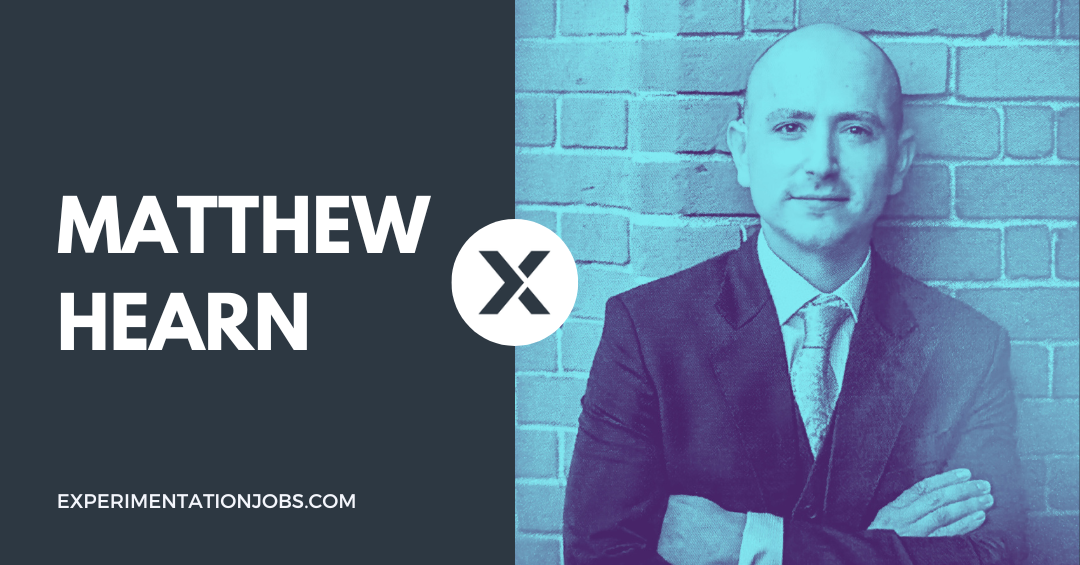The goal of this interview series is to inspire and help people to transition their career into a new or next experimentation related role. In this edition Rommil Santiago shares his journey. He is Founder of Experiment Nation.

When you see a client’s eyes light up at being able to test an idea and understand, mathematically, which variant performed better – it’s magical.
Rommil Santiago
Please introduce yourself to the readers
Hi! My name is Rommil Santiago, and I’m the founder of Experiment Nation. (I feel like I’ve said that sentence a thousand times now lol). I’ve been in the CRO / Product optimization space for well over 15 years now – having cut my teeth with Adobe Test and Target (if anyone remembers those days). I’ve had the pleasure to lead experimentation, growth, and marketing at several companies ranging from small start-ups to global enterprises. I’ve also written an Amazon Canada Bestseller, Prove It or Lose It. It’s a guide on how to survive managing an experimentation program.
What is your current experimentation role and what do you do?
Other than running Experiment Nation, I’m currently in between roles, actually. That said, I’m a problem solver at heart. I like exposing Growth, Marketing, and Product teams to the power of experimentation and how it can help them grow their business.
How did you enter the experimentation space? What was your first experimentation related role?
I was a consultant for Bell Canada, specializing in Analytics strategy. One day, our Adobe partner introduced us to Adobe Test and Target, and I found it interesting. I developed a Landing Page optimization service, sold it to one of our clients, and I was hooked. When you see a client’s eyes light up at being able to test an idea and understand, mathematically, which variant performed better – it’s magical. After Bell, I brought the practice over to Autodesk’s eStore team to help us crush our targets. I’ve been testing ever since.
How did you start to learn experimentation?
Lots of Google searches, to be honest. I studied to be a mechanical engineer, so I had some stats background already, but running experiments online was a whole new ball of wax for me. I found CXL pretty quickly, read stuff from Evan Miller, and ran a lot of tests – which I often screwed up. But I find you learn best from your mistakes – so you can say I learned very quickly.
How do you apply experimentation in your personal life? (what are you tinkering with or always optimizing?)
I don’t run strict split tests in my life, but I’m often one to try new things, just to see what will happen. I just launched a pre-post launch analyzer called LaunchBuddy (https://launchbuddy.experimentnation.com/) just for kicks (and I thought it could be useful). Other than that, I’m always trying to figure out the best boba combination – but it’ll be a while before I reach sample size.
What are you currently doing to keep up with the ever-changing industry?
Other than LinkedIn, I have conversations with those in the Experiment Nation community. They’re always asking interesting questions that make me think and is often the first place I hear of breaking news.
What recommendations would you give to someone who is looking to join the experimentation industry and get their first full-time position?
Connect with others, and start sharing opinions on LinkedIn. Folks tend to hire known quantities. If they don’t know you in any way, they are less likely to trust you. Build your brand, contribute to Experiment Nation 😉
Which developments in experimentation excite you? How do you see the field changing in the next 5 to 10 years?
I love how experimentation is shifting towards pulling its metrics directly from data warehouses. For years, aligning results with other analytics tools has been such a headache – this shift has been such a breath of fresh air. I think the field will fundamentally shift in the sense that more teams will adopt it on their own, and there will be less of a need for a dedicated experimentation resource in-house. Agencies will likely still be around, but I think we’ll see A/B testing become ubiquitous like using a Google Sheet. In terms of what will stay the same? The need to measure the impact of work. The need to test hypotheses. The lack of understanding of statistics. And HiPPOs – they’re never going away.
Is there anything people reading this can help you with? Or any parting words?
I’m always looking to get the word of Experiment Nation out there. So if you know of any CROs or Experimenters, particularly if they are new to the space, tell them about us! Also, as I’m on the job market, if anyone needs a guy who’s seen a test or two (or three), kindly keep me in mind =)
Which other experimenters would you love to read an interview by?
Rhys Mohun. He’s shaking things up and I love his energy.
Thank you Rommil for sharing your journey and insights.



